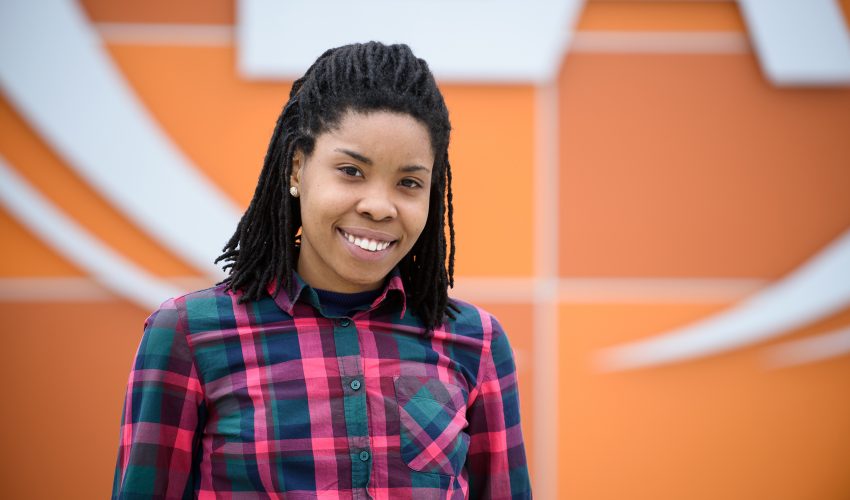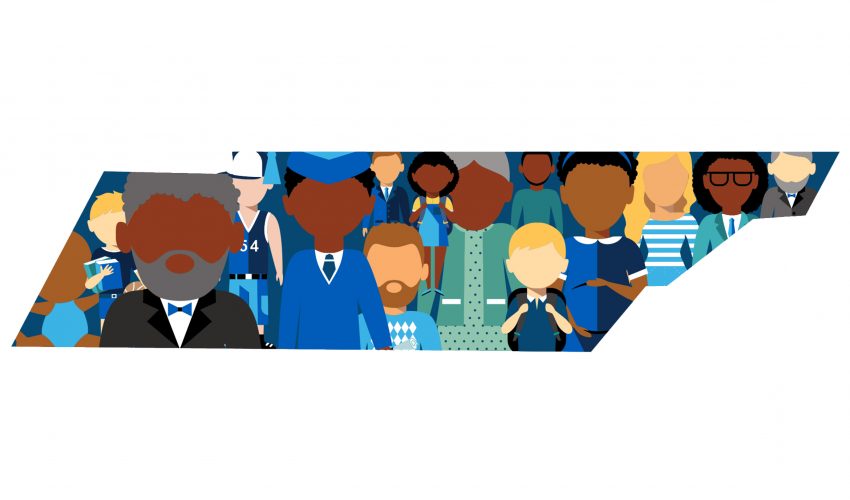Every girl has the potential to excel.
That’s the belief they start with at the Chattanooga Girls Leadership Academy, a public charter school dedicated to preparing girls in grades 6-12 for college. The school focuses on a STEAM curriculum (science, technology, engineering, arts and mathematics) and provides a supportive environment to help the students achieve their goals.
In 2016, the school launched CGLA GetFit, a health and wellness program for students, faculty and family.
Better Tennessee spoke to Kala Nunley, Wellness Coach, about how the program works and how students are responding to it.
Q&A
Better Tennessee: What sparked the creation of CGLA GetFit?
Kara Nunley: A community health assessment showed that residents in our part of the city are at risk for obesity, diabetes and hypertension. At the same time, the school knew that there was a lot of research showing a connection between physical activity and academics. So a health and wellness program that encourages healthier behaviors made sense for the school.
BT: How does the program work?
Nunley: The faculty and staff have a quarterly wellness plan where they get weighed. We measure muscle mass and body fat and let them know their Body Mass Index (BMI) if they want to know. Together, we set three goals to accomplish that quarter, and then discuss the steps to reach those goals.
Students go through the same wellness plan, and most of them have goals to decrease their sugar intake or stop eating junk food.
A lot of the students know that what they are doing is unhealthy, but they need help correcting it.
GetFit also offers after-school fitness classes. On Mondays, for example, students get transportation to the YMCA for swimming, and they can get training to be certified as lifeguards. They can also take classes there, like Zumba or Pilates. Twice a month the school has an open gym for family health night. We offer cooking and nutrition classes, too.
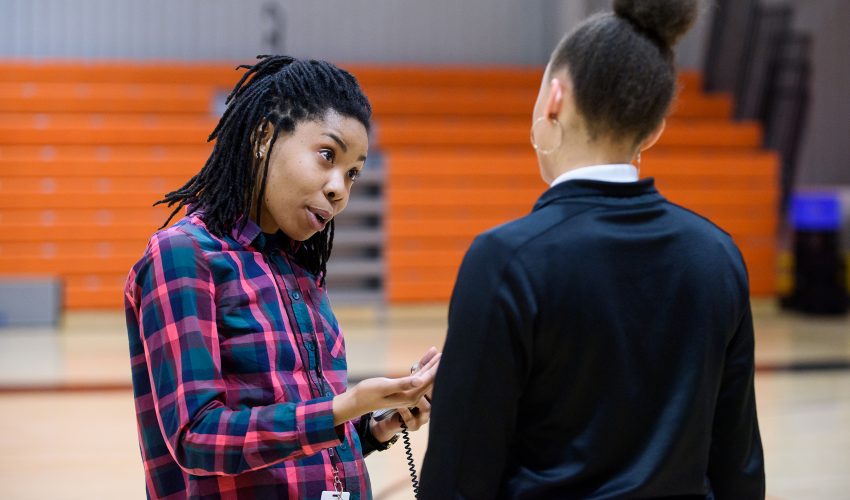
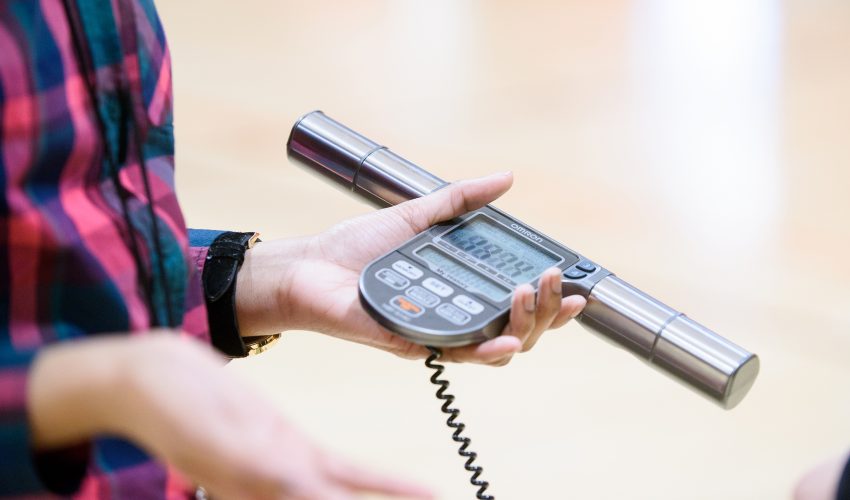
BT: What parts of the program resonate most?
Nunley: Nutrition can be the hardest to address because families in the area either don’t know to cook healthy, don’t have the time, or don’t have access to healthy foods.
The majority of our students are from low-income families — 94 percent are on free or reduced lunch plans. That means the family doesn’t have the means for a proper meal, especially since a lot of them live in a food desert. They are far from a grocery store, and the closest place to buy food is usually a corner store or a gas station. Maybe there’s a fast food chain.
To help with that we try to educate them, pointing out that frozen fruits and vegetables are good choices if they can’t get fresh. A monthly mobile food pantry for families has healthy food staples, such as rice, beans and peanut butter. Sometimes there is ground turkey or chicken, and we’ll use those in our cooking demonstrations. If people say they don’t like ground turkey, I try to show them how to use it to replace ground beef in a way that they’ll enjoy. And most times they do!
BT: Do parents participate in the program?
Nunley: It can be hard to engage the parents long-term. Last year, we started a family health night that included a cooking demonstration and physical activities. There was a lot of participation at the start, but as the year progressed the numbers went down.
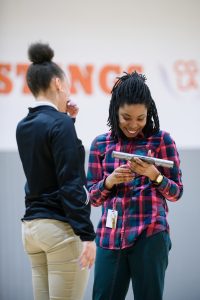
Life happens. Some of our parents work nights. Schedules can be hard to work around. So this year we decided to combine family health night with our quarterly STEAM night, when our students show their class projects to their families, friends and the community. In the first quarter we had a cooking demonstration from UT Extension that parents loved. The next quarter, a Zumba instructor led a class for everyone and we had someone from the health department speak about tobacco cessation. This year I’m trying to engage people to use our gym facilities. We have a full workout facility that I hope people will use during our open gym hours.
BT: What do you see happening among the students as they learn more about healthy choices?
Nunley: One mother took the initiative to bring her daughter in for a doctor’s exam and the doctor said the girl was overweight and at risk to be pre-diabetic. The mom said she was going to do better to make sure her child was healthy. So every day the daughter comes to school with fresh fruit for breakfast, eats a healthy lunch provided by the school and her mom makes baked chicken and vegetables for dinner. Those changes are making a noticeable difference in the young women’s weight, energy level and health.
So, there are changes happening. But I will still see students eating a bag of chips or candy during the day, or bring in pop tarts in the morning. When I see that, I try to let them know that there are better choices.
I explain that sugar is addictive, and if they continue to use it, they will see the effects, and those effects can be life-threatening.
So instead, if they want something sweet, they get a granola bar with a little dark chocolate.
As far as physical activity, the kids are looking forward to those afterschool activities. Students always come to ask me, “What are we doing today, Miss Kala?”
I can’t always be there to help them make healthier choices in what they eat, but as long as I can arrange a way to get their physical activity in for the day, I know that I’m making an impact.
